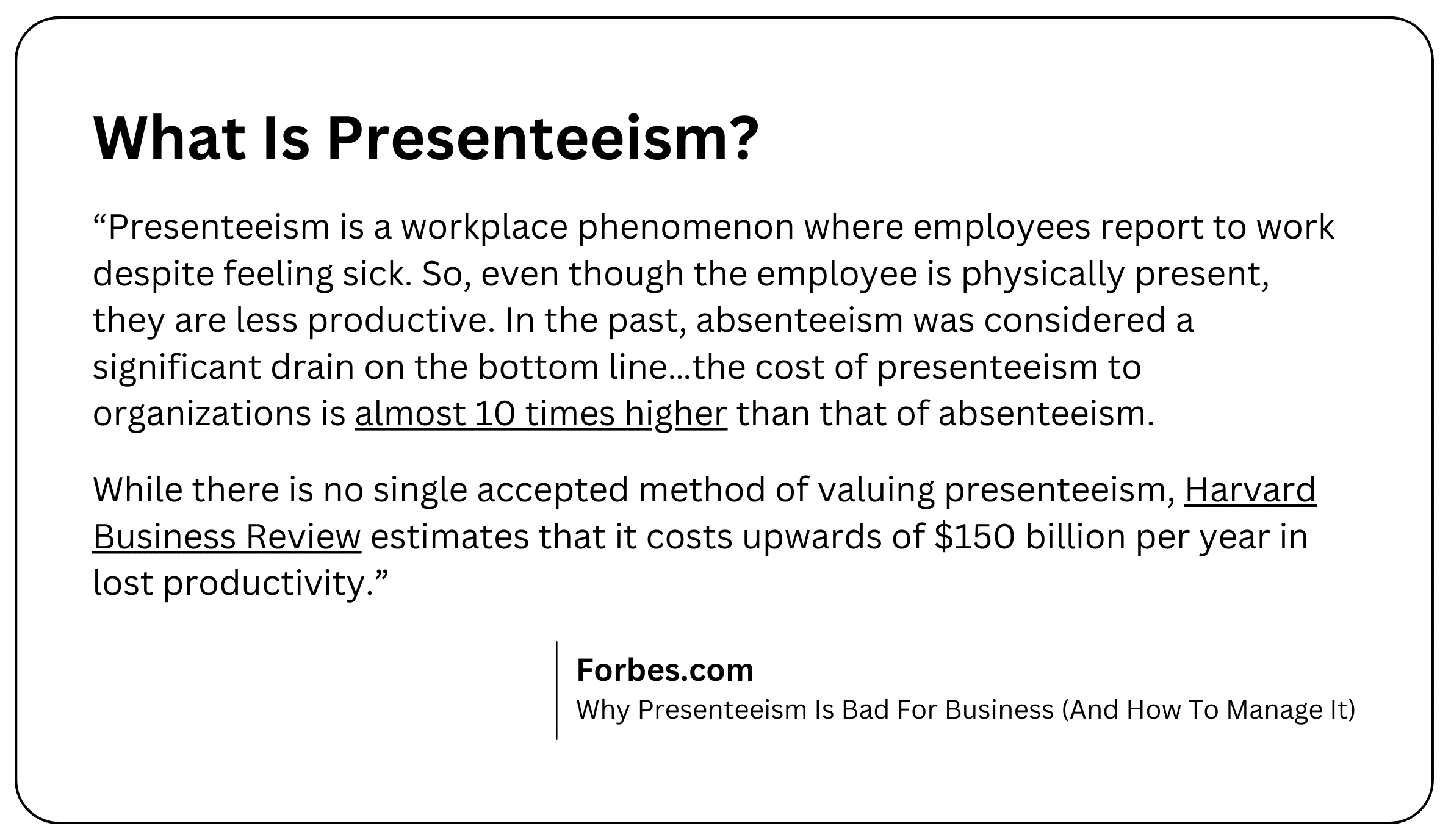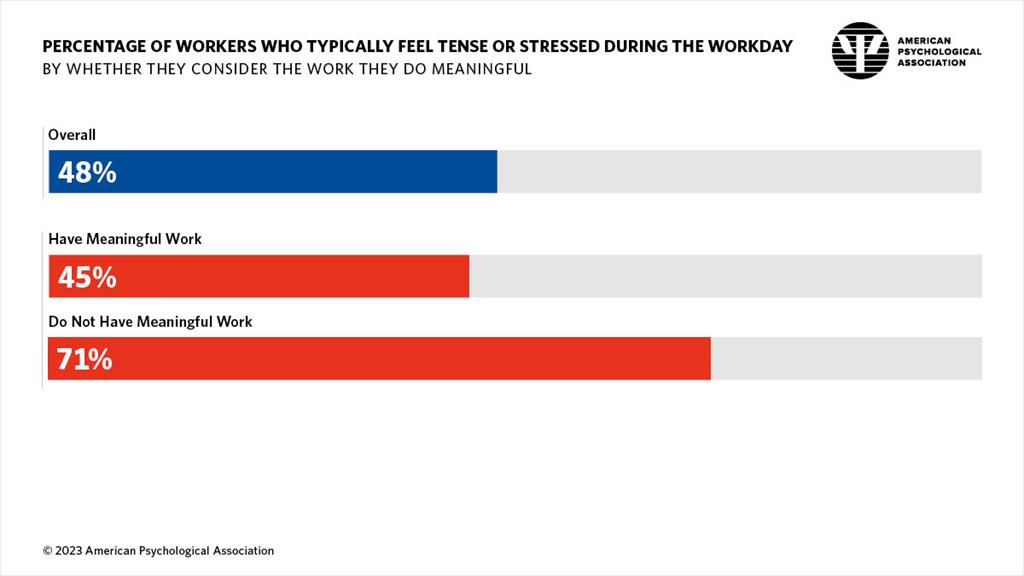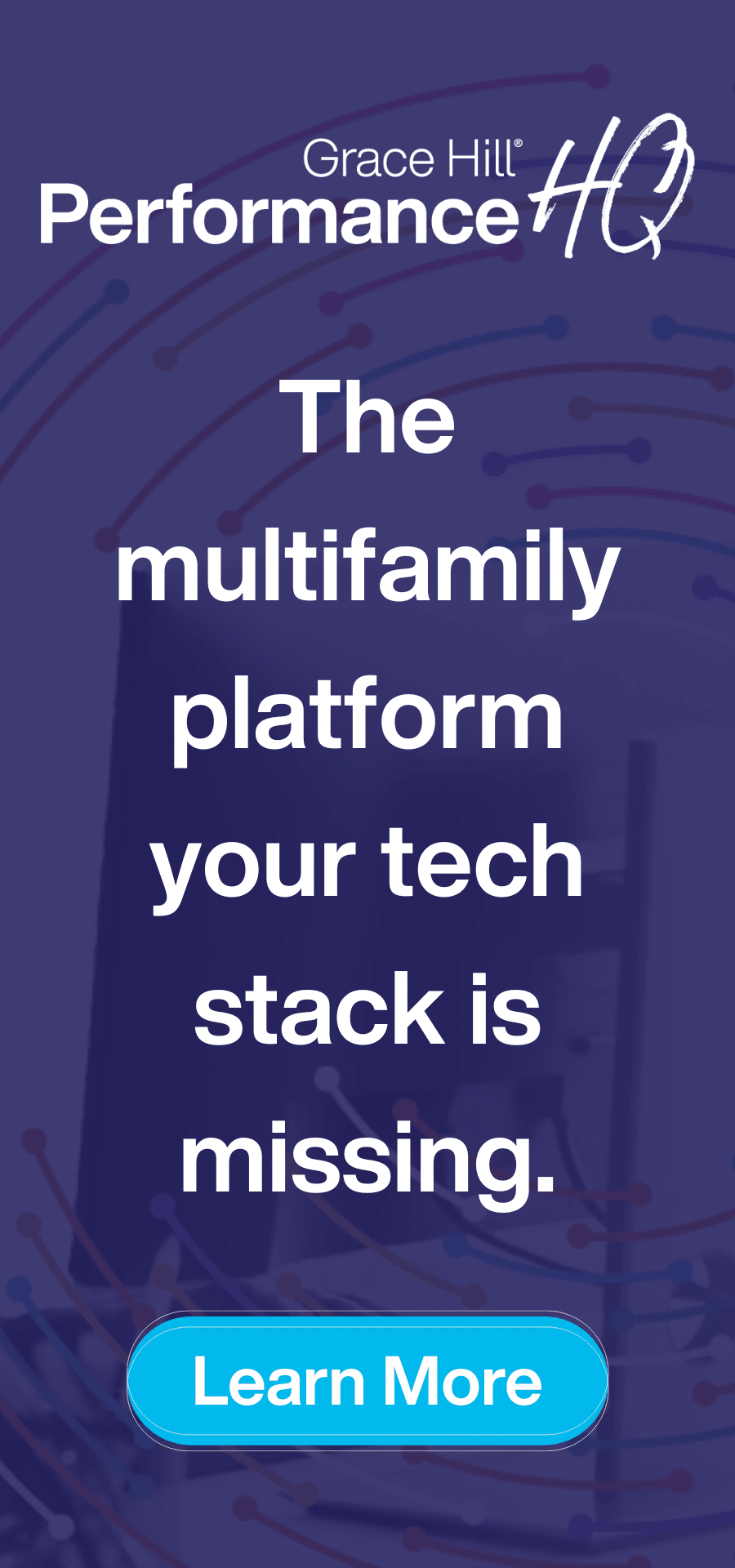Mental health in the workplace has become an increasingly important topic, and multifamily leaders play a crucial role in developing strategies that promote well-being for employees and residents.
From managing properties and teams to navigating the complex regulatory landscape, multifamily leaders in various roles often find themselves juggling a multitude of responsibilities. However, this high-pressure environment can take a toll on mental health, leading to burnout, stress, and reduced job satisfaction.
In this blog, we will explore:
- The unique challenges and stressors faced by multifamily leaders.
- The impact of mental health in the multifamily workplace.
- The importance of building a healthy workplace through mental health initiatives.
- Why leaders must create a culture prioritizing well-being and guiding employees to embrace these initiatives.
Multifamily Leadership: Unique Challenges and Stressors
Multifamily leaders, property managers, maintenance supervisors, and HR professionals face unique challenges and stressors in today’s workplace, driven by evolving market dynamics, workforce expectations, and regulatory demands. One major challenge is the rising demand for affordable housing amid market volatility and economic uncertainty.
Multifamily leaders must balance increasing operational costs, such as property maintenance and utilities, with resident retention and rent affordability. Additionally, the shift toward ESG sustainability and green building practices adds another layer of complexity as leaders are tasked with upgrading infrastructure to meet new environmental standards.
As a result, this can put pressure on property managers, who must manage resident and employee satisfaction, address vacancies, and maintain property standards while meeting budgetary constraints.
For leaders in the multifamily industry, attracting and retaining talent in a competitive labor market is one of the top stressors. The multifamily sector often requires specialized skills in property management, maintenance, and customer service.
Teams must navigate employee expectations for flexible work arrangements, competitive benefits, and career development opportunities, which can be difficult in an industry with traditionally demanding roles.
Furthermore, the focus on diversity, equity, and inclusion (DEI) in hiring practices, along with the need to navigate changing regulations and maintain compliance with fair hiring laws, has added additional layers of responsibility, making talent management more complex.
Because fair hiring involves compliance with U.S. laws such as the Equal Employment Opportunity (EEO) laws, which prohibit discrimination based on race, gender, age, disability, and other protected characteristics, multifamily leaders must ensure their hiring practices are free from bias, promote diversity, and comply with regulations governing equal employment opportunities. These evolving legal requirements demand that companies not only prioritize equitable hiring but also ensure transparency, consistent documentation, and adherence to various labor regulations. It adds additional layers — and potential complications and stressors — to the recruitment and retention processes.
Recognizing the unique challenges multifamily professionals face, it’s imperative to foster a workplace culture that prioritizes mental health. By implementing effective initiatives and creating a supportive environment, leaders can empower their teams to thrive and achieve their full potential.
The Impact of Mental Health on the Multifamily Workplace
Staffing challenges, rising costs, safety concerns, and more have placed increased pressure and stress on employees in the rental housing industry.
Despite increased attention to the topic of mental health in the workplace, survey results from the 2023 Mental and Emotional Health Survey, conducted on behalf of the National Apartment Association (NAA) and its Mental Health Subcommittee, found respondents’ lowest scoring topics related to feeling:
- More stressed than a year ago.
- Stress about their workload (40%).
- Mental health was interfering with their personal lives.
It’s no longer a secret that unchecked stress has profound health implications. However, what is becoming more understood, particularly in the multifamily sector, is its impact on employee performance and resident satisfaction. Stress takes a tremendous toll, and high levels of stress among employees can contribute to decreased morale, lower productivity, and a negative impact on the resident experience.
Also shocking, the survey found that “[l]ess than two-thirds of respondents agree they would recommend working in the rental housing industry.”
Remaining passive about employee well-being is no longer a viable option.
Mental health profoundly influences employee productivity, job satisfaction, and retention. The 2023 Work in America Survey by the American Psychological Association revealed that having “meaningful work” or feeling “valued at work” is closely associated with psychological well-being.
It shows that “Those who reported not having meaningful work were much more likely to report that they were typically tense or stressed out during their workday (71%) than those who reported having meaningful work (45%).
How mental health affects employee satisfaction.
When employees have access to mental health resources and feel supported in managing stress, anxiety, or other challenges, they tend to have higher job satisfaction. Companies that foster a positive mental health environment — through flexible work arrangements, mental health days, or counseling services — can create a more engaged and motivated workforce. Employees are more likely to feel valued when their well-being is prioritized, contributing to a greater sense of belonging and satisfaction with their role.
How mental health affects productivity.
Mental health significantly impacts productivity, as employees struggling with mental health issues often experience fatigue, lack of focus, and decreased motivation. Anxiety, depression, and stress can lead to absenteeism or presenteeism (being physically present but not fully engaged), which directly affects work output.
According to the World Health Organization (WHO), depression and anxiety disorders cost the global economy an estimated $1 trillion annually in lost productivity. Addressing mental health through workplace support can boost morale and, in turn, enhance productivity.
How mental health affects retention.
Mental health is also a key factor in employee retention. Workers who feel overwhelmed, unsupported, or stressed are more likely to leave their jobs in search of healthier work environments. The 2023 NAA Mental and Emotional Health Survey found that 50% of respondents stated that mental health issues contributed to their decision to leave a previous job.
Offering mental health benefits, such as access to counseling and fostering a supportive work culture, helps retain talent by reducing burnout and encouraging long-term commitment to the organization.
While these key statistics and facts are merely the tip of the iceberg, they underscore the importance of prioritizing mental health in the workplace.
Why you shouldn’t neglect mental health in the multifamily workplace.
Neglecting mental health in the multifamily workplace can lead to a range of negative consequences, including decreased employee satisfaction, reduced productivity, and higher turnover rates.
Property managers and multifamily leaders are already facing significant pressures, such as balancing resident preferences and operational challenges, and unaddressed mental health issues can heighten these stressors.
Employees experiencing burnout, anxiety, or stress may disengage from their roles, leading to poor resident interactions and deteriorating property conditions. Additionally, as multifamily professionals struggle to attract and retain talent in a competitive market, failing to provide mental health support can increase absenteeism, presenteeism, and employee turnover, ultimately raising recruitment costs and reducing overall efficiency.

When employees are struggling with mental health issues, their productivity, job performance, and morale can suffer. Multifamily organizations that overlook mental health risk creating a toxic workplace culture, driving away top talent and negatively impacting both business outcomes and resident satisfaction.
Furthermore, a lack of support for mental health can damage your company’s reputation and make it difficult to attract and retain employees.
Check out this infographic about mental health in the workplace!
For company leaders, the response to mental and emotional health significantly impacts the organization. Your employees are one of your greatest assets; don’t overlook opportunities to offer the support they need.
Mental Health Initiatives for Multifamily Leaders
Employee wellness is critical for employee performance, and great leaders set the example they want their organizations to follow. While it all starts with having effective mental wellness policies for your multifamily properties and teams, they are only as valuable as their implementation.
Clear communication is key to ensuring that all employees and residents understand the resources available to them and feel comfortable accessing them. Leaders can foster a more supportive and inclusive community by openly discussing mental health and providing specific guidelines for accessing support.
Mental Health Policy
As mentioned, employee mental health can directly impact property performance and your bottom line. Grace Hill offers comprehensive mental health policies like our employee handbook, which makes it easier for your team to know the expectations.
Consistent implementation of these policies — which includes training staff to recognize signs of distress and providing appropriate referrals — demonstrates a genuine commitment to the well-being of residents and creates a culture where seeking help is encouraged rather than stigmatized.
Training Courses and Boosters
People in positions of multifamily leadership are often overburdened and emotionally drained. However, the most successful leaders prioritize personal wellness to avoid burnout, resentment, and apathy.
As a multifamily leader, understanding and addressing mental health is crucial for creating a supportive and productive workplace. And embracing the idea of “putting your oxygen mask on first” can lead to higher-performing teams and improved organizational results.
Ongoing education and support for all members of your organization are essential to foster a culture of well-being. Your employees deserve a proven training solution that delivers results, and Grace Hill is here to help.
By investing in a solution that offers specific topics for training courses, such as mental health awareness, stress management, and conflict resolution, you can equip your team with the tools they need to navigate challenges and promote a positive work environment.
Regular booster sessions provide short, engaging learning activities that can be completed in five minutes or less, and they are specifically designed to combat the “forgetting curve.” Boosters help to further reinforce learning and address emerging challenges, ensuring that your team remains equipped to support one another and maintain their own mental health.
Ready to learn how leaders can THRIVE instead of just survive? Watch this webinar!
Employee Surveys
Employee surveys are invaluable tools for multifamily leaders seeking to understand and improve their mental health initiatives. By providing a platform for feedback, these surveys offer a direct line of communication with employees.
The benefit of a robust survey solution is that it allows leaders to:
- Gauge the effectiveness of current programs.
- Identify areas of need.
- Uncover hidden challenges that might otherwise go unnoticed.
Survey results can be analyzed to pinpoint areas where employees feel supported or unsupported. This data can be used to refine existing initiatives, develop new programs, and measure the overall impact of mental health investments.
By tracking changes over time, leaders can assess whether their efforts are making a positive difference in the lives of their employees.
Employee Satisfaction and Its Link to Resident Satisfaction
Small changes make a big impact, and you can differentiate your organization by supporting efforts that encourage a healthy, productive, and engaged workforce.
Each of the following areas highly correlates to employee retention:
- Employee well-being is prioritized.
- The company culture encourages healthy work/life balance.
- Executive leadership is visible and engaged.
- Corporate resources are given to support mental health.
The well-being of your employees directly impacts the satisfaction of your residents. When staff members feel valued, supported, and content, they are more likely to provide exceptional service. This, in turn, leads to happier and more engaged residents. In fact, 1 in 4 properties with low staff turnover achieved 70% resident retention, demonstrating the powerful connection between employee and resident satisfaction.
Investing in mental health initiatives for your employees also impacts resident retention because when staff members feel supported in their mental health, they are better equipped to handle stress and provide quality care.
The evidence is clear: Happy and engaged employees create a positive and welcoming living environment for residents because they are more likely to go above and beyond to assist residents. This positive atmosphere can attract new residents, boost occupancy rates, and, ultimately, improve your property’s bottom line.
Mental Health in the Workplace: Where Do We Go From Here?
By prioritizing mental health initiatives, multifamily leaders can create a supportive and thriving workplace culture. By understanding the unique challenges employees face and implementing strategies to promote well-being, leaders can foster a more engaged, productive, and satisfied workforce. Ultimately, this investment in mental health will not only improve employee satisfaction but also enhance resident experiences and drive the overall success of your property and portfolio.
Be the leader your employees deserve. Invest in mental health initiatives today to create a healthier, happier, and more successful environment for tomorrow.
Grace Hill offers solutions that put your people first.


 Customer Support
Customer Support





